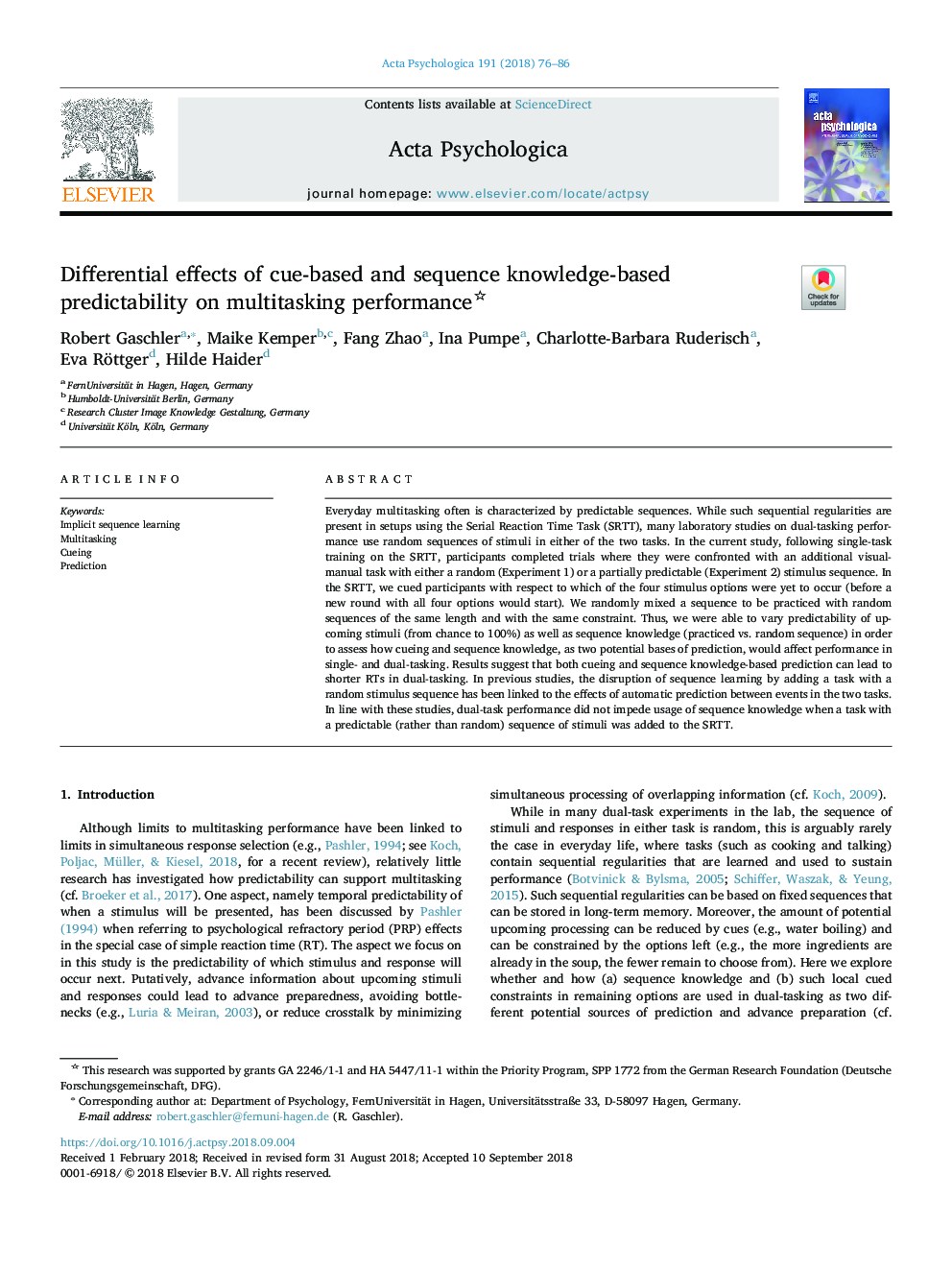| Article ID | Journal | Published Year | Pages | File Type |
|---|---|---|---|---|
| 10147028 | Acta Psychologica | 2018 | 11 Pages |
Abstract
Everyday multitasking often is characterized by predictable sequences. While such sequential regularities are present in setups using the Serial Reaction Time Task (SRTT), many laboratory studies on dual-tasking performance use random sequences of stimuli in either of the two tasks. In the current study, following single-task training on the SRTT, participants completed trials where they were confronted with an additional visual-manual task with either a random (Experiment 1) or a partially predictable (Experiment 2) stimulus sequence. In the SRTT, we cued participants with respect to which of the four stimulus options were yet to occur (before a new round with all four options would start). We randomly mixed a sequence to be practiced with random sequences of the same length and with the same constraint. Thus, we were able to vary predictability of upcoming stimuli (from chance to 100%) as well as sequence knowledge (practiced vs. random sequence) in order to assess how cueing and sequence knowledge, as two potential bases of prediction, would affect performance in single- and dual-tasking. Results suggest that both cueing and sequence knowledge-based prediction can lead to shorter RTs in dual-tasking. In previous studies, the disruption of sequence learning by adding a task with a random stimulus sequence has been linked to the effects of automatic prediction between events in the two tasks. In line with these studies, dual-task performance did not impede usage of sequence knowledge when a task with a predictable (rather than random) sequence of stimuli was added to the SRTT.
Related Topics
Life Sciences
Neuroscience
Cognitive Neuroscience
Authors
Robert Gaschler, Maike Kemper, Fang Zhao, Ina Pumpe, Charlotte-Barbara Ruderisch, Eva Röttger, Hilde Haider,
